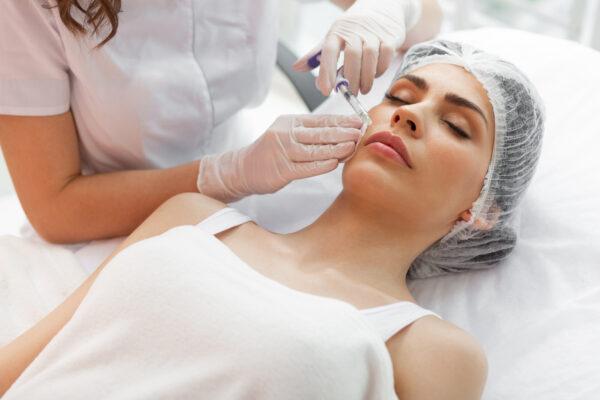
Qualified therapists are able to treat their patients by injecting Botox properly.
Did you know that there are no laws governing the aesthetics industry? As a result, your therapist is not legally required to be licensed or to show proof of insurance. Sobering, isn’t it? especially considering the growth in the popularity of risky treatments. And just because a salon has a bunch of certificates framed on the wall doesn’t mean the therapist working there is qualified.
In spite of this, a recent survey found that 56% of consumers still hold the false belief that the non-surgical cosmetics industry is regulated. Last week in Parliament, the British Association of Beauty Therapy and Cosmetology (BABTAC) launched its T.I.M.E initiative to protect consumers from potentially harmful procedures.
The T.I.M.E. Checklist is a set of regulations that will lay the groundwork for making sure that everyone knows what questions to ask and precautions to take before undergoing non-surgical procedures. Because of the lack of oversight, anyone can launch what looks like a legitimate business in the beauty industry. This initiative seeks to change that by protecting consumers, regulating businesses, raising public awareness and education, and elevating the status of qualified professionals in the field.
The British Association for Beauty Therapy and Cosmetology (BABTAC) has created a list of questions for potential patients to find a qualified aesthetic therapist before scheduling a treatment.
- TRAINING
How much experience do they have, and what kind of training do they have, including CPD (Continual Professional Development)?
- INSURANCE
Who provides their insurance, if any?
- MONITORING
Do they perform necessary procedures before and after appointments, such as patch tests, consultations, and aftercare?
- EVIDENCE
What kind of official documentation of training, insurance, and client testimonials do they have on hand?
Do not wish to cause undue alarm among customers, but there is currently no legislation, and now I will proceed to explain how you should question your therapist: In order to avoid having to say anything awkward to their face during your appointment, consider asking any questions you may have over the phone when scheduling it. This is a particularly British and generational trait. What credentials does this person possess? Would you like to know who taught someone to use a laser if they are going to hover over the patients?
We have seen a rise in the number of “botched” beauty treatments in recent years due to the lack of regulation in this industry, which exposes patients to potentially dangerous situations all too frequently. The purpose of this regulatory checklist is to act as a gentle but effective prompt for patients to select services that are grounded in evidence and are optimal for their needs, all while reducing unnecessary dangers.
A medical professional can acquire the aforementioned traits through education and practical experience. Botox training is now available for medical professionals. Visit https://dentox.com/all-courses/ for online courses or https://dentox.com/live-courses/ for courses with live patients in person.







